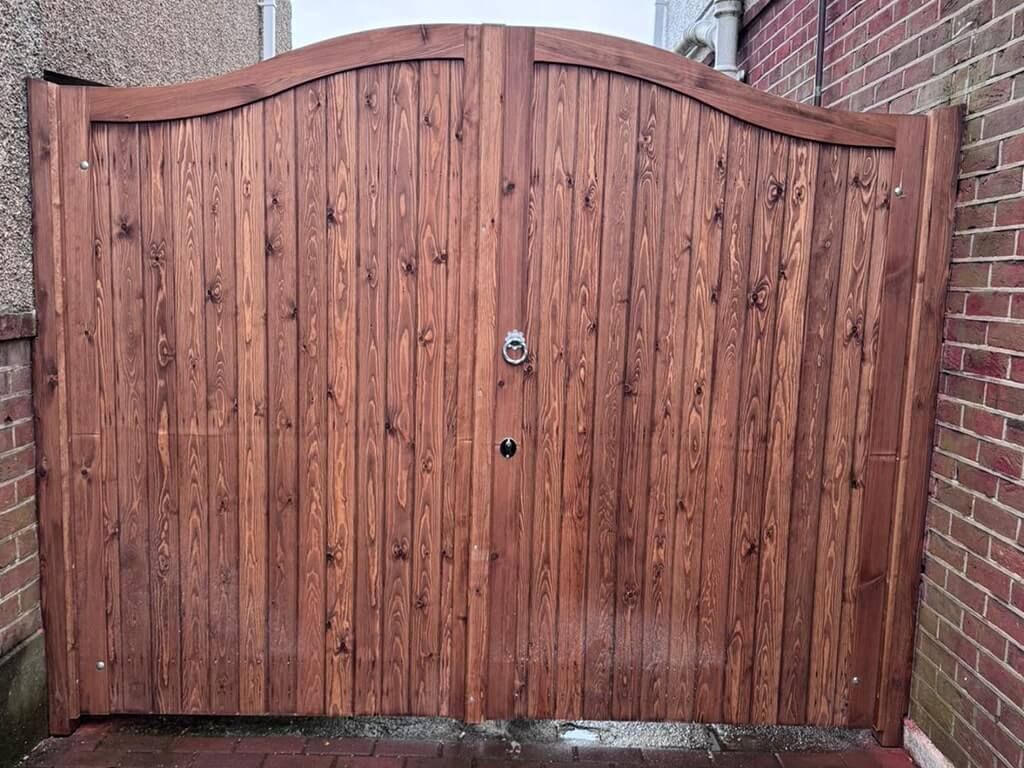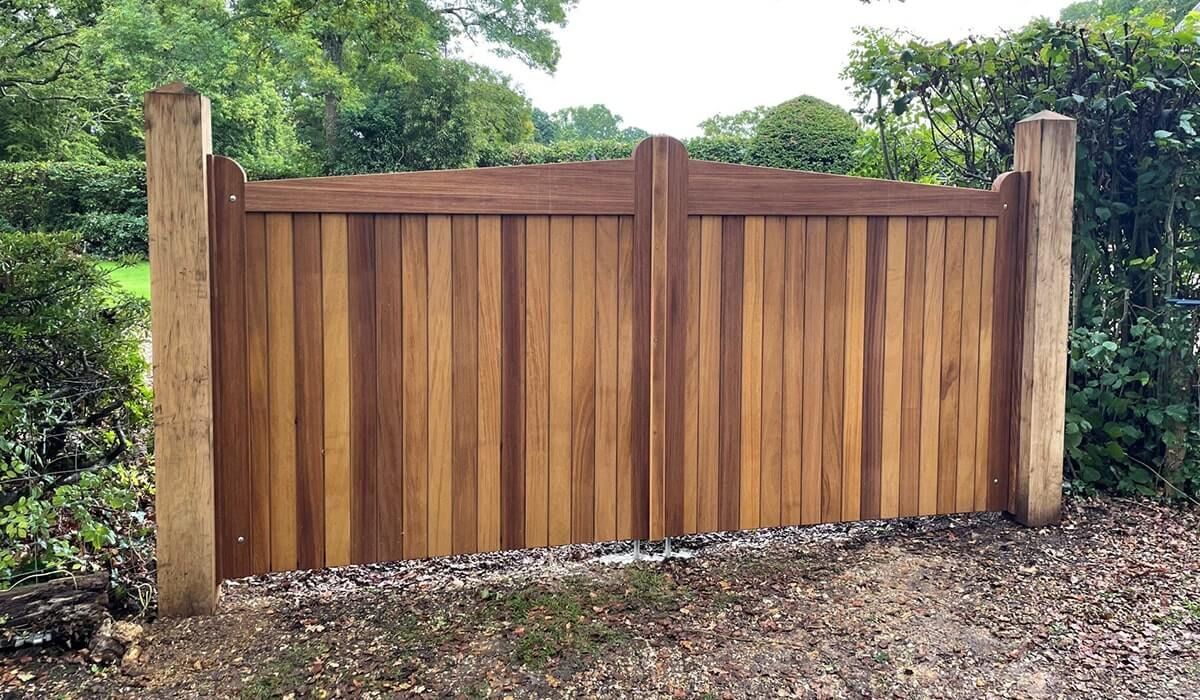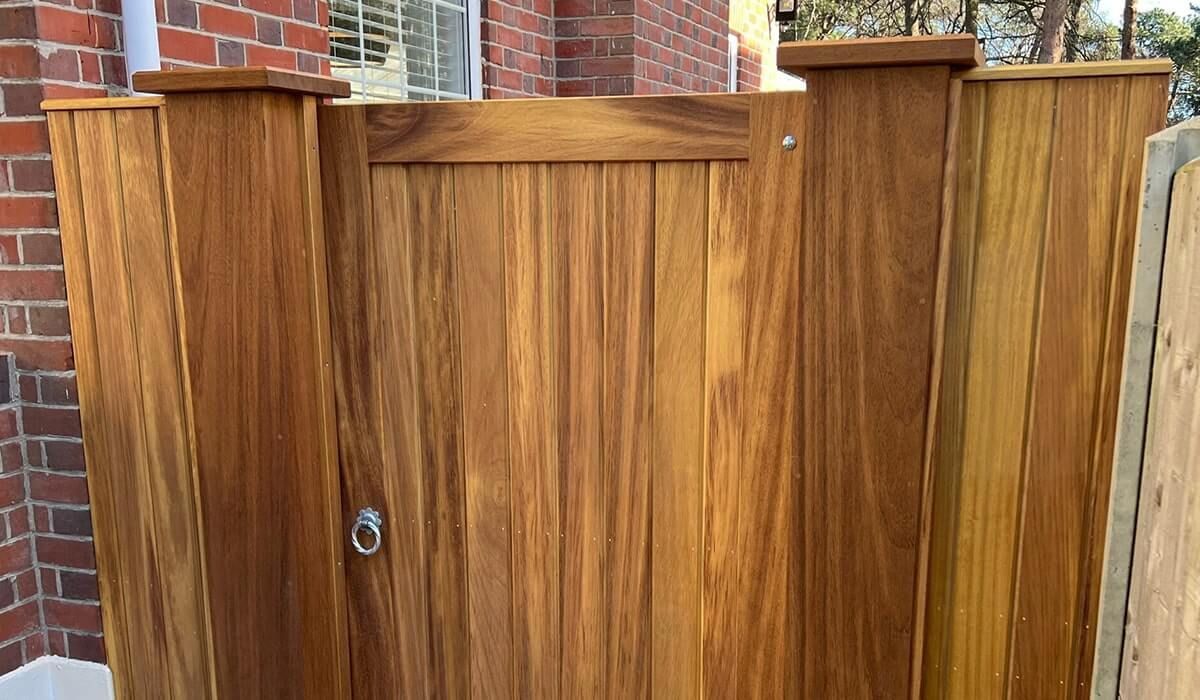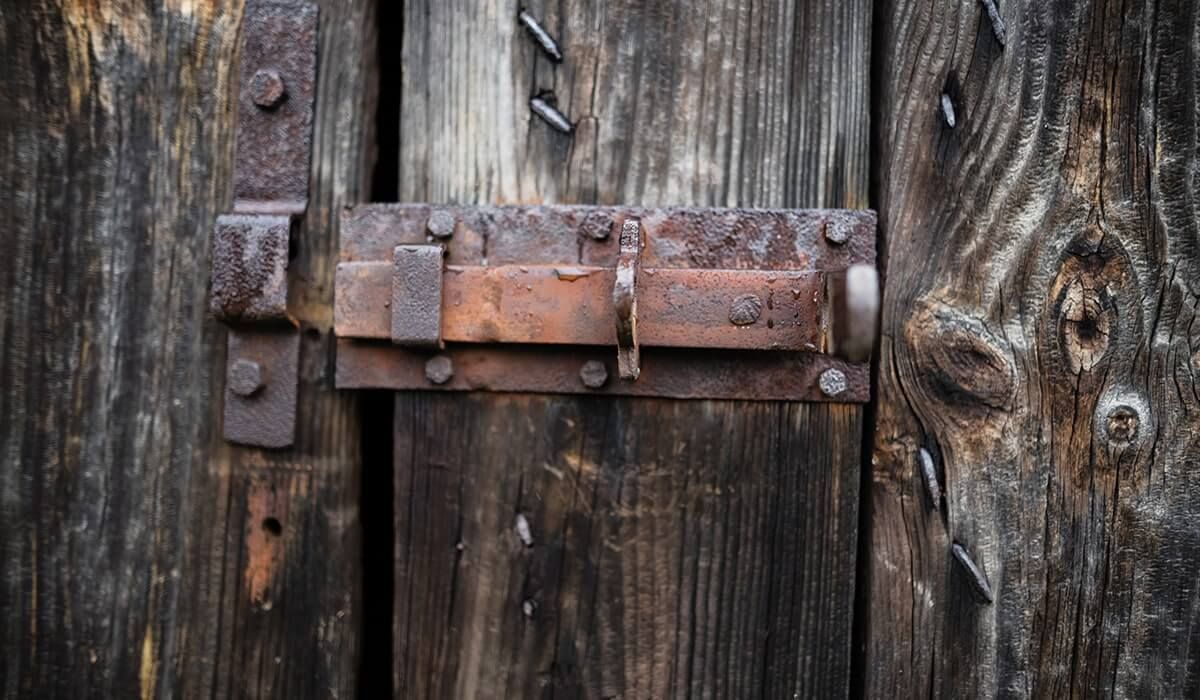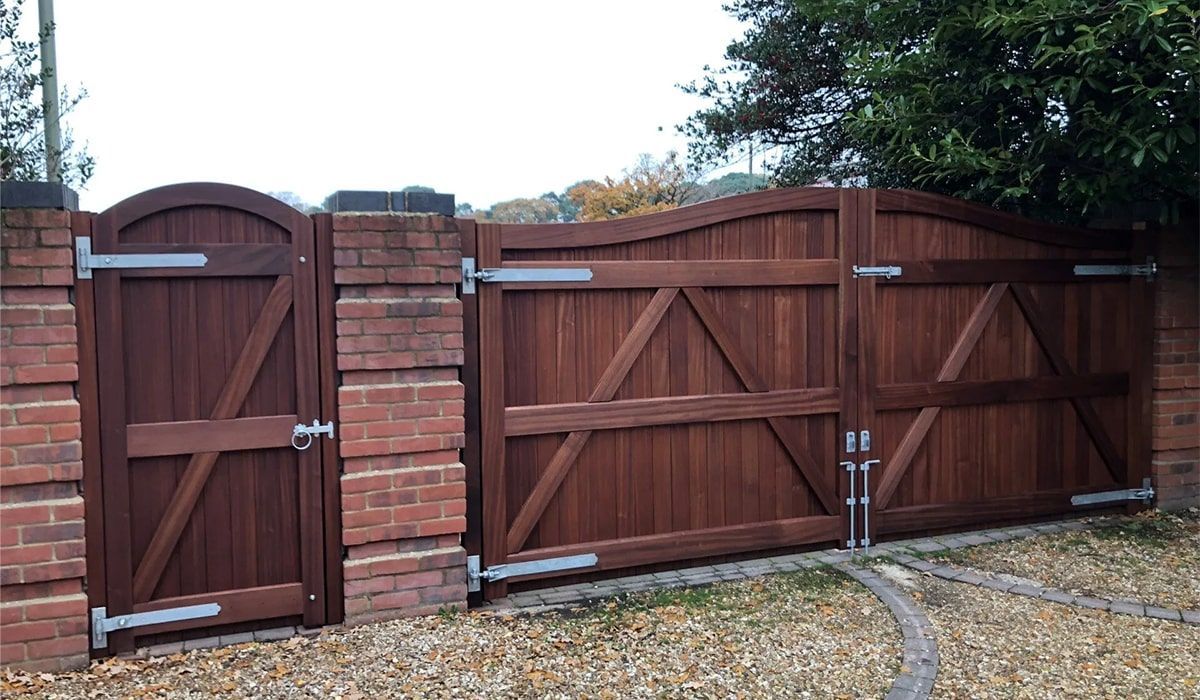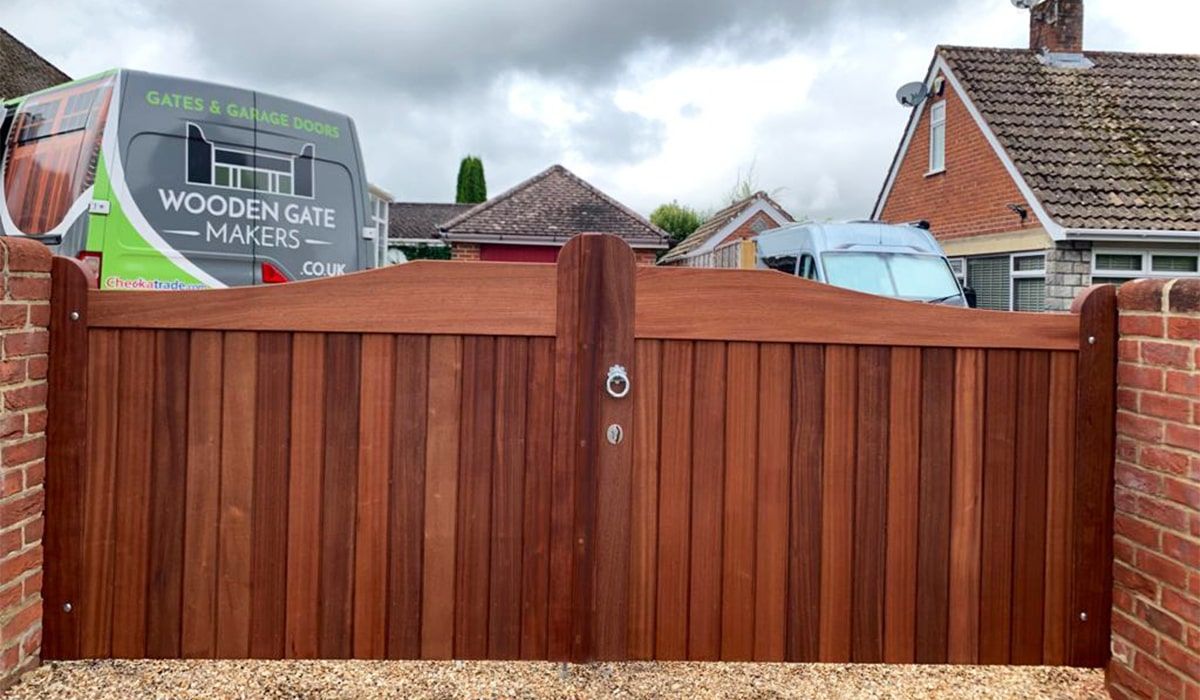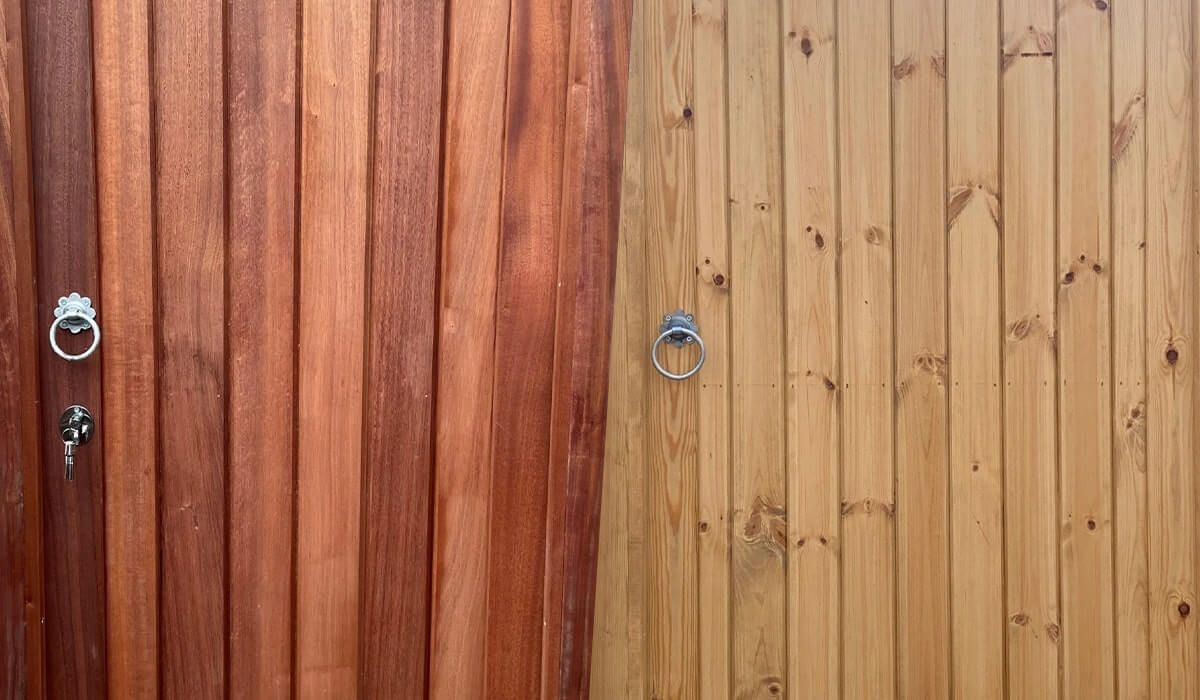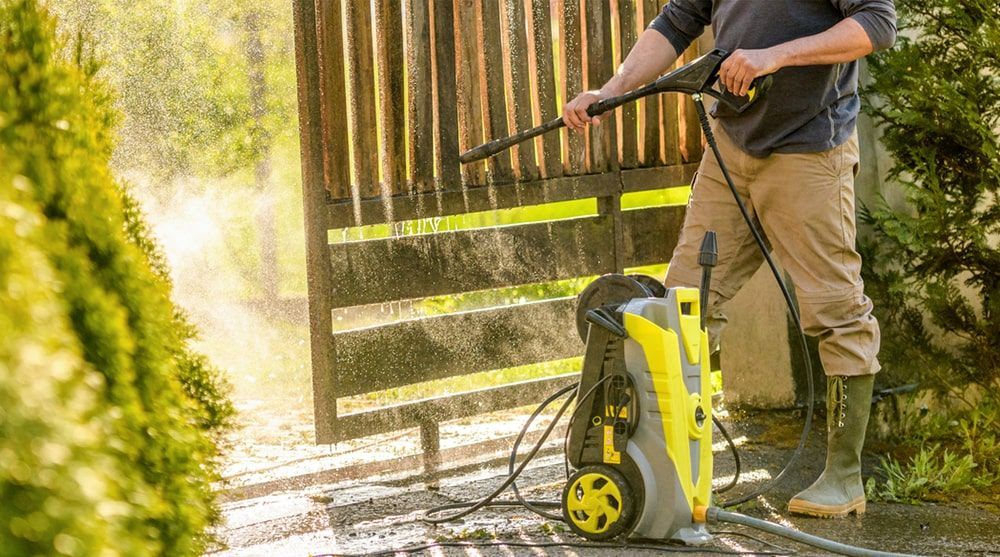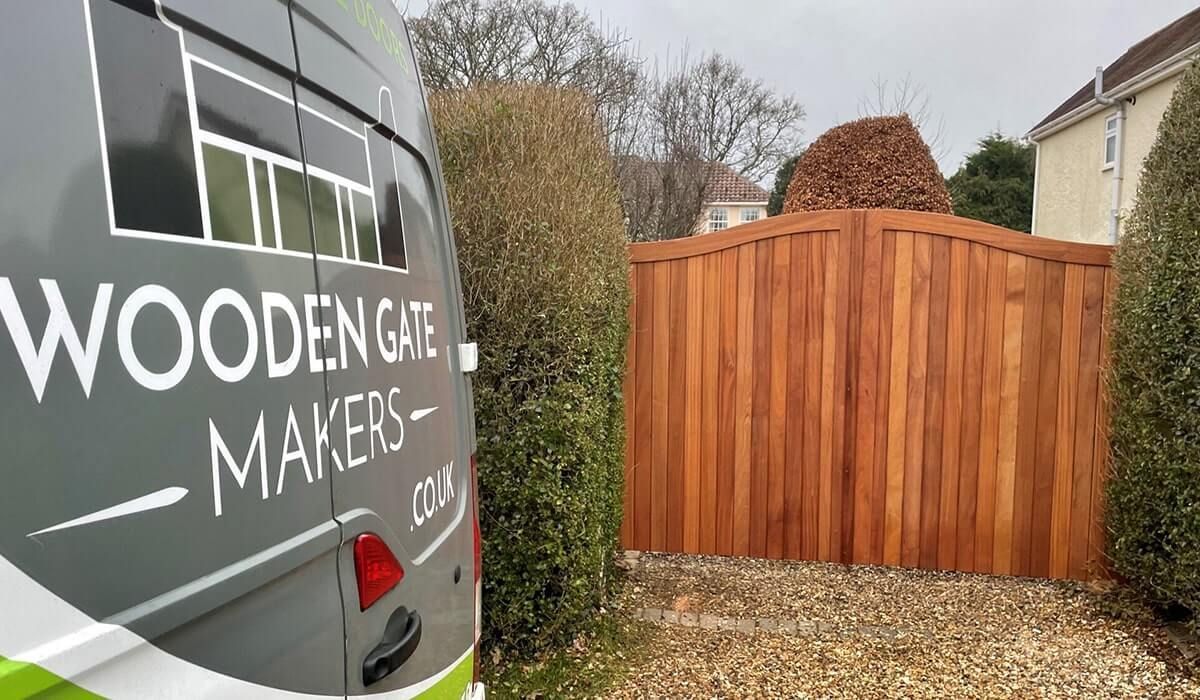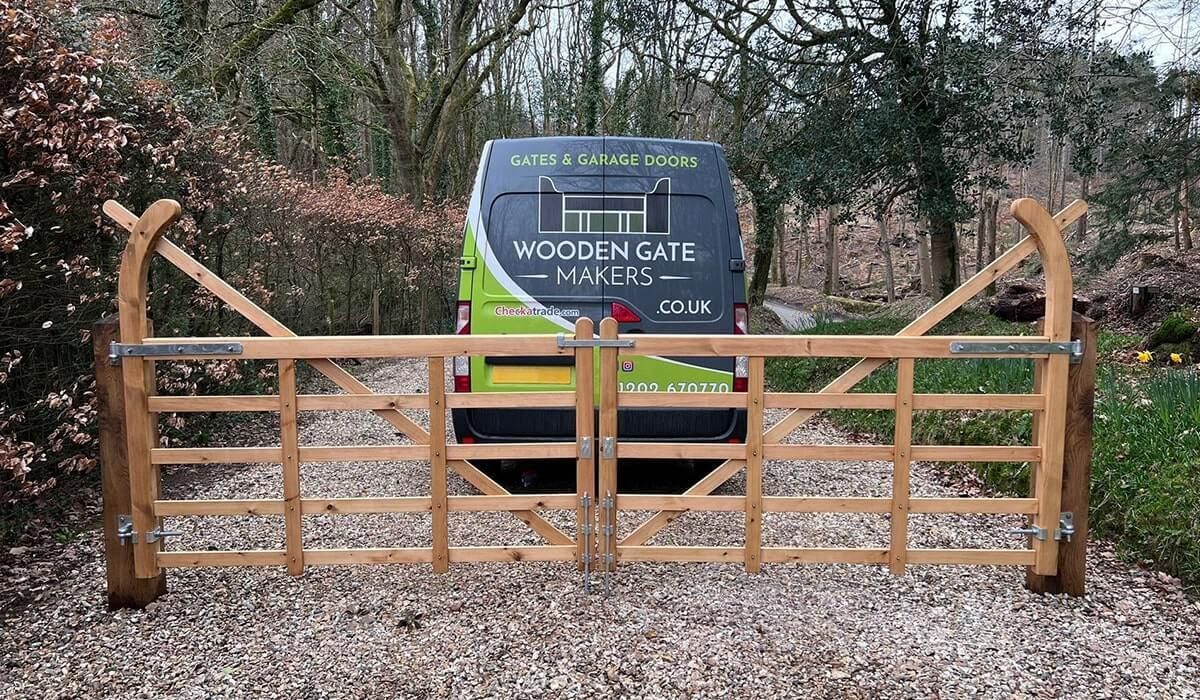Hardwood vs Softwood Gates: Which Option is Right for You?
- by Phil Barratt
- •
- 25 Jan, 2023
A wooden garden or driveway gate can add a lot of character to your property. Whilst choosing your gate’s style is based on visual preference, knowing which wood option to choose can be less obvious and will depend on several factors.
What is a softwood gate?
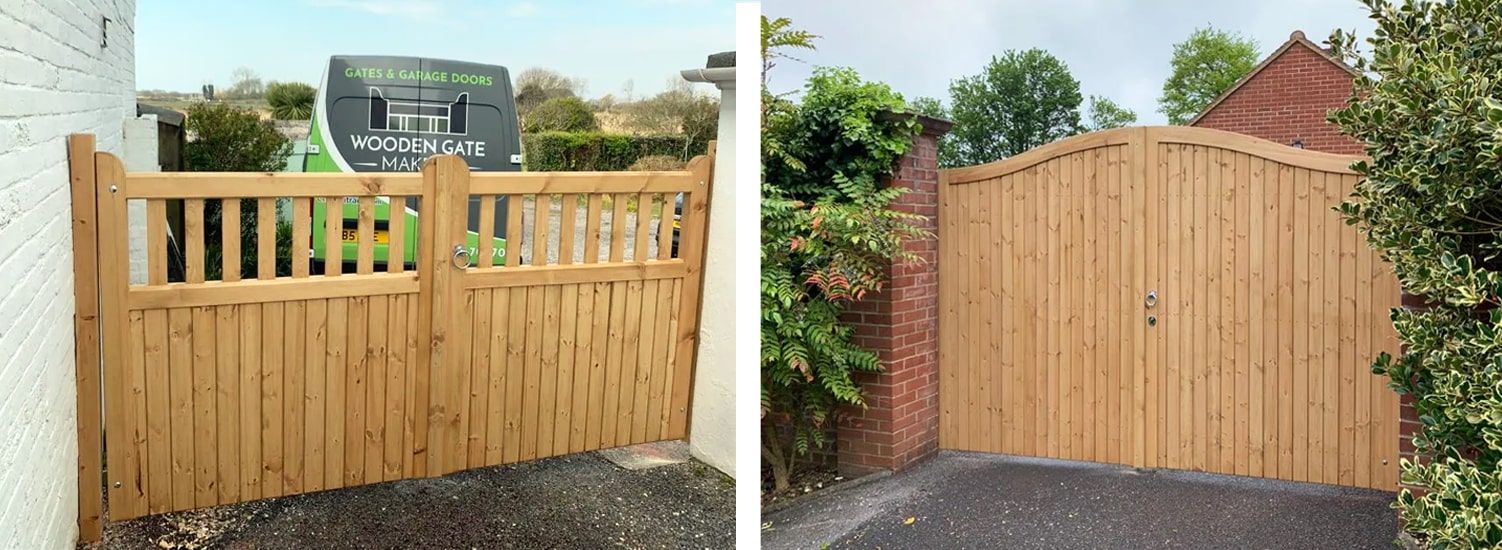
Benefits of a softwood gate:
- Less expensive that hardwood
- Lifespan averaging 9-10 years
Disadvantages of a softwood gate:
- Less durable
- Can degrade quickly without treatment
- Fewer wood options
What is a hardwood gate?
Hardwood trees take longer to grow than softwood trees, which is one reason for their greater price point. We manufacture our hardwood gates using sapele, iroko and European oak.
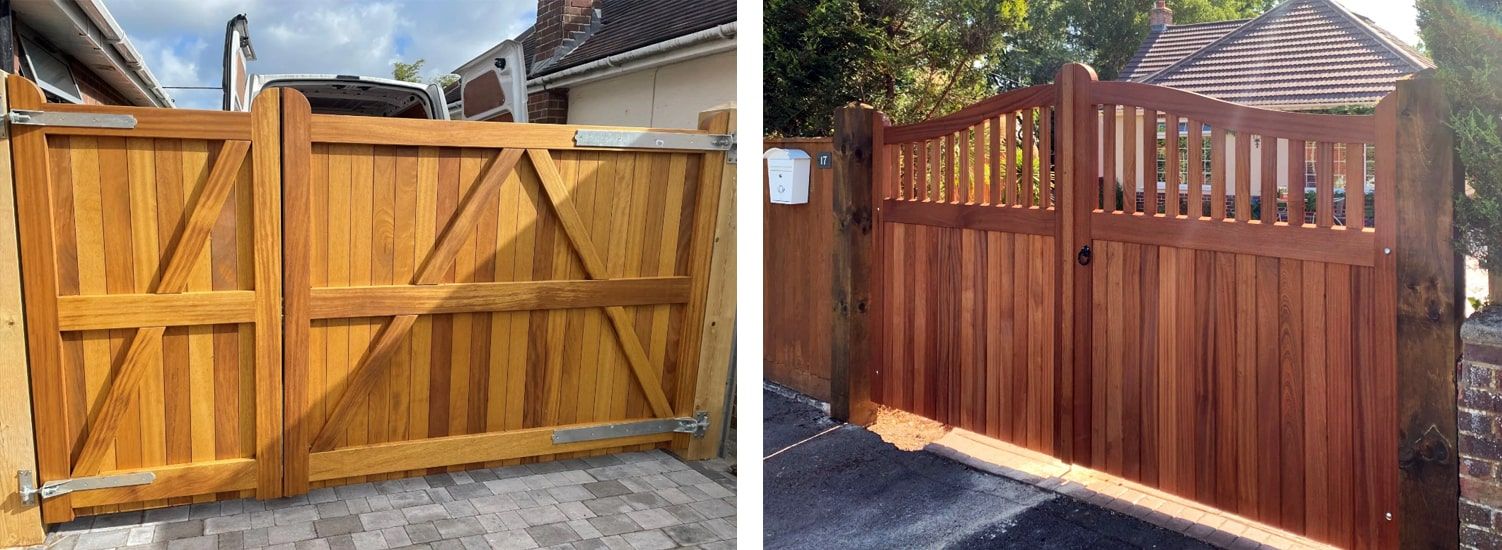
Sapele is from the Mahogany family and has a luxurious red-brown appearance. It retains its colour well as it ages.
Iroko Gates
Iroko is a highly durable timber from the Teak family. It has a varied golden-brown appearance. As it ages, the wood turns silver in colour.
European Oak Gates
One of the most common hardwood options used for outdoor gates due to its durability, oak gates can come in colours ranging from tan through to silver. However, oak can be prone to surface checking and splitting, though this will not usually compromise the gate’s integrity.
Benefits of a hardwood gate:
- More durable than softwood
- Lifespan averaging 30+ years
- Superior wood grain
- Lower wood knot count
- More wood options
Disadvantages of a hardwood gate:
- More expensive than softwood
Durability
When it comes to durability, a hardwood gate can’t be beat. Even without treatment, a hardwood gate can be left in all weather conditions for several decades without compromising its strength, though treatment will help to keep its aesthetic appearance intact. You can reasonably expect your hardwood gate to remain in great condition for more than 30 years!
On the other hand, softwood gates without treatment can rot and warp when exposed to moisture, so regular maintenance is essential. However, even with annual treatment, a softwood gate’s average lifespan is no longer than 10 years.
Cost
If you are looking for a more budget-friendly option, then a softwood gate is the best choice for you. However, if you want a more long-term option that requires minimal upkeep and maintenance, a hardwood gate is the best option, as it will outlast a softwood gate by several decades.
Appearance
Winner: Hardwood Gates
Hardwood contains less knots and grain imperfections than softwood, which can make hardwood gates much more attractive to look at, they also tend to have a richer colour.
Which wood should you choose for your gate?
Looking for more inspiration? Check out some of our previous installations!


Name & Registered Office: Bespoke Design UK LTD Austin House,43 Poole Road, Bournemouth, BH4 9DN (workshop address on contact page) - Company No. 05974013
